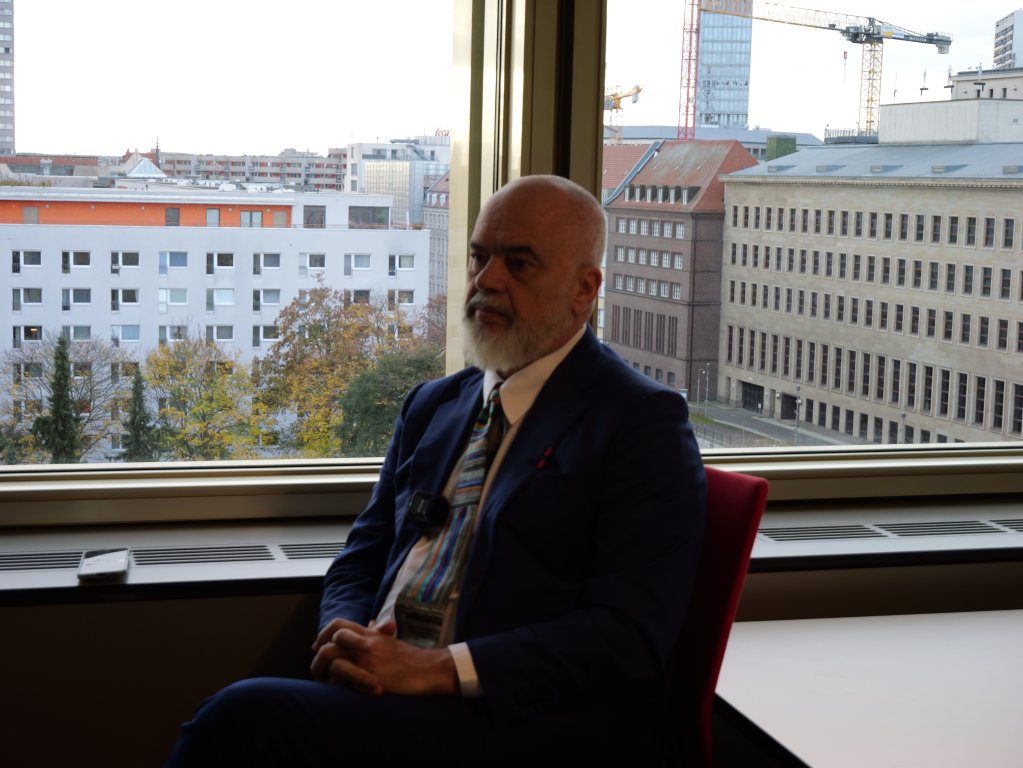Albania’s Prime Minister Edi Rama has made it clear that the current issues surrounding Italy’s migrant return centers in Albania are Italy’s responsibility to resolve. Speaking in an exclusive interview with InfoMigrants, he explained that the centers, which were meant to process migrants intercepted at sea, have been suspended due to legal challenges in the Italian courts. Rama emphasized that Albania’s role was simply to provide Italy with land for the project and that what happens next is entirely up to the Italian government.
He stopped short of commenting on when or whether migrant transfers to Albania would resume, telling reporters that any questions about the future of the program should be directed to Italy. According to Rama, the centers were established mostly because of Albania’s close historical and political ties to Italy. However, he stressed that any legal complications arising from the arrangement are not Albania’s concern.
The centers, located in Shengjin and Gjader, were intended to house up to 3,000 migrants per month as part of a controversial offshore processing plan. But after a series of court rulings in Italy, transfers have halted, leaving the centers nearly empty. Reports from humanitarian groups have raised concerns about conditions inside the facilities, including cases of self-harm and mental distress among migrants who were briefly detained there.
Rama also addressed speculation that Albania could help the United Kingdom establish similar return hubs for failed asylum seekers. He firmly rejected the idea, stating that Albania will not host migrant return centers on behalf of the UK. He explained that while the partnership with Italy exists because of a special relationship, there is no such agreement with Britain. Rama added that he had already made Albania’s position clear during recent diplomatic meetings in London.
Why did Albania agree to host Italy’s migrant hubs but refused to do the same for the UK?
Albania agreed to work with Italy due to a long-standing and strong bilateral relationship. However, Albania does not have the same arrangement with the UK and has made it clear that it will not host UK migrant return centers under any circumstances.
Meanwhile, Italian Prime Minister Giorgia Meloni continues to defend the plan, stating that her government’s migration policies are reducing arrivals and increasing repatriations. She has argued that the success of the centers will be clearer over time, despite courts repeatedly blocking deportations to Albania. The debate comes as European lawmakers consider new rules that might allow more migrant processing centers outside EU borders.
Human rights organizations, however, warn that shifting migrant detention away from EU territory could limit oversight, increase isolation, and heighten risks for vulnerable people. Legal experts also caution that current EU law does not fully support this offshore approach, meaning Italy may face numerous legal challenges moving forward.
As discussions continue in Europe about new strategies for handling migration, the future of the Italy-Albania hubs remains uncertain. What is clear, however, is that Albania is drawing strict boundaries on how far it is willing to go in supporting external migration management, especially when it comes to countries beyond Italy.

